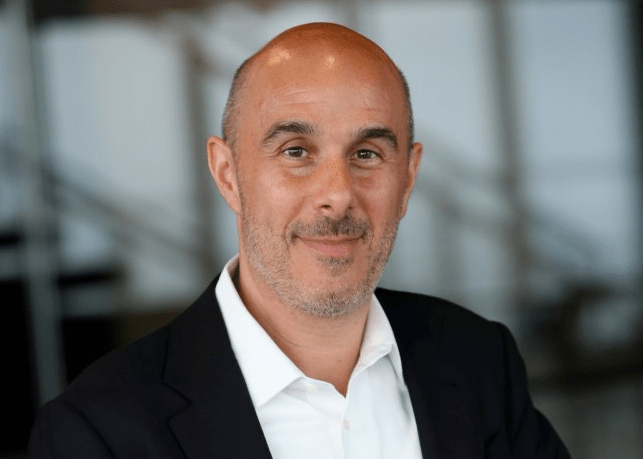- In today’s CEO Daily: Phil Wahba on the changing of the guard at Target.
- The big story: The Fed will attempt to sustain its independence at the Jackson Hole symposium today despite a second criminal referral from Trump loyalists.
- The markets: Asia is up, everyone else is down.
- Plus: All the news and watercooler chat from Fortune.
Good morning. When Brian Cornell took the reins at Target 11 years ago, the retailer was, to put it mildly, a mess. Among its many problems: Target was struggling with out-of-stocks that frustrated shoppers, employee morale was low, and there was a sense that the retailer had lost much of the “Tar-zhay” cheap-chic magic that had won it millions of loyal, fanatical shoppers for decades.
So it’s disappointing for fans to see that same shopping list of problems plaguing Target again. Sales have been in decline for three years now, and the stock has plunged 64% from its all-time high in 2022.
It didn’t have to be this way. At the start of his tenure, Cornell, who the company announced yesterday will step down as CEO on February 1, was an outsider unafraid to move fast and break things. He had been CEO of a big PepsiCo unit, Michaels Stores, and Sam’s Club before that.
As I detailed in a 2015 cover story, he quickly ended Target’s ill-advised Canada expansion to focus without distraction on a struggling U.S. business, assembled an A-team of merchants to re-energize Target’s store brands (for a while, Target was launching billion-dollar brands on a monthly basis) and changed Target’s insular culture.
And in March 2017, in perhaps his boldest move, he announced a $7 billion multi-year program to remodel its physical stores, making them more inviting but also equipping them to support e-commerce pick up and delivery at a time investing in physical stores was seen as folly given Amazon’s ascendance.
Wall Street pummeled the stock but Cornell had the last laugh. Target soared for years, building a huge digital business and taking market share from department stores. It was also well-positioned with its curbside pickup and improved grocery when the pandemic struck to be one of retail’s big winners alongside Walmart and Costco. Indeed, sales rose 20% in 2020 and the following year, revenue passed $100 billion for the first time.
By that point, Cornell had been in the post for eight years, roughly the average tenure of a Fortune 500 CEO. But rather than hand on the baton, he signed on for another three years through 2025. Unfortunately, inertia set in. Shoppers felt Target lost its edge. Millions defected. Meanwhile, Walmart swooped in to take market share with its suddenly hipper apparel and home goods offerings. (The whole contretemps around DEI was also an unforced error that hurt morale.)
Cornell had a great run overall, but like many CEOs, seems to have misjudged the moment when it’s time to move on. (And he’s not really going away—he will stay on as executive chairman indefinitely.) Though Wall Street had been hoping for an outsider to take the reins, Target’s COO Michael Fiddelke got the nod. He’ll have his work cut out for him. But perhaps the lesson here is, even successful CEOs have a shelf life.—Phil Wahba
- Contact CEO Daily via Diane Brady at diane.brady@fortune.com
Top news
The Fed is more concerned about inflation than jobs
U.S. Federal Reserve officials were more concerned about the inflationary impact of President Trump’s trade tariffs than signs of weakness in the job market, according to the minutes of their last meeting. The Fed meets at Jackson Hole today. Chair Jerome Powell will make a closely watched speech on Friday.
Fed governor accused of mortgage fraud
Federal Reserve governor Lisa Cook was accused of mortgage fraud and referred for criminal prosecution by federal housing regulator Bill Pulte. He said she "has falsified bank documents and property records to acquire more favorable loan terms, potentially committing mortgage fraud under the criminal statutes." Cook is accused of taking out loans on properties in Michigan and Atlanta and claiming that both were her principal residence. Trump called on her to resign. Context: The Trump administration is trying to end the Fed’s economic independence and bring it under political control. Powell has also been referred for a criminal probe, baselessly, over his remarks to Congress.
Meta reorganizes its “superintelligence” unit
Meta is doubling down on its so-called race to “superintelligence,” reshuffling its AI organization once more as its new Meta Superintelligence Labs group takes shape. But analysts say investors are keeping their eye on the prize Meta has always promised: improved products that increase engagement and, in turn, sell more ads. Superintelligent AI models, if they arrive, are just a means to that end. Former Scale AI CEO Alexandr Wang is leading the reorganization.
China moved against Nvidia after “insulting” remarks from Lutnick
Regulators in China moved to restrict companies from buying Nvidia chips after they felt insulted by remarks on CNBC by U.S. Commerce Secretary Howard Lutnick, the FT reports. “We don’t sell them our best stuff, not our second-best stuff, not even our third-best,” Lutnick said on July 15. “You want to sell the Chinese enough that their developers get addicted to the American technology stack, that’s the thinking.”
Bed Bath & Beyond blasts California
Bed Bath & Beyond won’t open stores in California because the state “has created one of the most overregulated, expensive and risky environments for businesses in America,” executive chairman Marcus Lemonis said in a statement. The chain went bankrupt in 2023 and closed all its stores, but is attempting a comeback under Kirkland’s Inc. It has opened a new store in Nashville. California officials were unfazed by Lemonis’s criticism. “Like most Americans, we thought Bed Bath & Beyond no longer existed,” the governor’s spokesperson said.
The tide shifts in the labor market
Managers offered up significant raises to keep employees around during the Great Resignation in the aftermath of the pandemic. Now they’re taking the power back with return-to-office policies and pay cuts.
‘Bubble’ worries hit Big Tech stocks
Big Tech stocks fell sharply on Tuesday amid concerns of a potential AI bubble after a new MIT report found that nearly 95% of corporate generative AI pilot programs had “little to no” profit or revenue upside. Experts who spoke to Fortune, however, say this correction is expected and not necessarily indicative of a bubble.
Sony raises console prices due to tariffs
Sony announced that it will raise the price of its PlayStation 5 consoles to adjust for the Trump Administration's tariffs on electronics made in China. The company joins Microsoft and Nintendo, which have made similar price increases on their consoles this year.
We’re not going to see those Epstein docs
A federal court has ruled for a second time that transcripts and exhibits from the grand jury probe of Jeffrey Epstein will not be released because there are not "any special circumstances" to justify the move.
The markets
S&P 500 futures were flat this morning, premarket, after the index closed down 0.24% yesterday. STOXX Europe 600 was down 0.1% in early trading. The U.K.’s FTSE 100 was flat in early trading. Japan’s Nikkei 225 was down 0.65%. China’s CSI 300 was up 0.39%. The South Korea KOSPI was up 0.37%. India’s Nifty 50 was up 0.29% before the end of the session. Bitcoin fell to $113.8K.
Around the watercooler
Tesla shareholder group urges probe, ‘appropriate remedial action’ from Nasdaq over Elon Musk’s $29 billion pay package by Nick Lichtenberg
Trump may want lower interest rates for consumers, but it sure is convenient for the national debt he’s creating, too by Eleanor Pringle
Cape Cod is considering taxing luxury home sales of $2+ million to raise funds for the housing market’s ‘missing middle’ by Sydney Lake
CEO Daily is compiled and edited by Joey Abrams and Jim Edwards.













